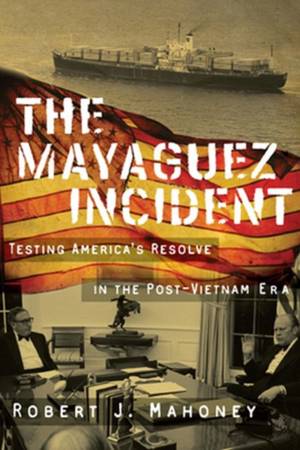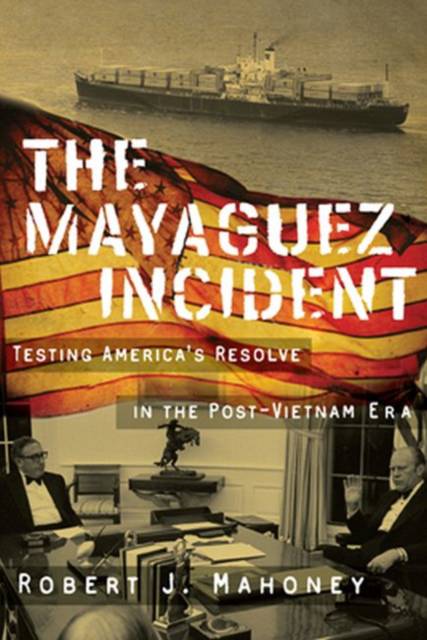
- Afhalen na 1 uur in een winkel met voorraad
- Gratis thuislevering in België vanaf € 30
- Ruim aanbod met 7 miljoen producten
- Afhalen na 1 uur in een winkel met voorraad
- Gratis thuislevering in België vanaf € 30
- Ruim aanbod met 7 miljoen producten
Zoeken
€ 65,95
+ 131 punten
Omschrijving
On May 12, 1975, just days after the U.S. withdrawal of troops from Vietnam, the American merchant cargo ship SS Mayaguez was seized by the Cambodian Khmer Rouge in international waters. President Gerald Ford--the first (and only) non-elected president of the United States--found himself in the midst of an intense four-day international crisis with significant historical ramifications. The Mayaguez incident was the first test of the president's role as commander-in-chief since the enactment of the 1973 War Powers Act, which was intended to limit presidential power. While the Ford administration's swift and violent reaction achieved its stated goals of enhancing U.S. prestige and rescuing the ship and crew, Robert J. Mahoney's analysis of the events demonstrates that the end result was largely a matter of extreme good fortune. Mahoney examines the reason for the failure of correct intelligence to reach the invading U.S. force, explores the circumstances that worked in America's favor, and details the decision-making process from the National Security Council through the operational levels down to the tactical forces. With access to recently declassified primary sources, Mahoney shows how this short but intense crisis helped spur the most radical restructuring of the Department of Defense since its inception in 1947--and highlights issues of access and information that still reverberate today.
Specificaties
Betrokkenen
- Auteur(s):
- Uitgeverij:
Inhoud
- Aantal bladzijden:
- 320
- Taal:
- Engels
- Reeks:
Eigenschappen
- Productcode (EAN):
- 9780896727199
- Verschijningsdatum:
- 15/01/2011
- Uitvoering:
- Hardcover
- Formaat:
- Ongenaaid / garenloos gebonden
- Afmetingen:
- 160 mm x 231 mm
- Gewicht:
- 716 g

Alleen bij Standaard Boekhandel
+ 131 punten op je klantenkaart van Standaard Boekhandel
Beoordelingen
We publiceren alleen reviews die voldoen aan de voorwaarden voor reviews. Bekijk onze voorwaarden voor reviews.












